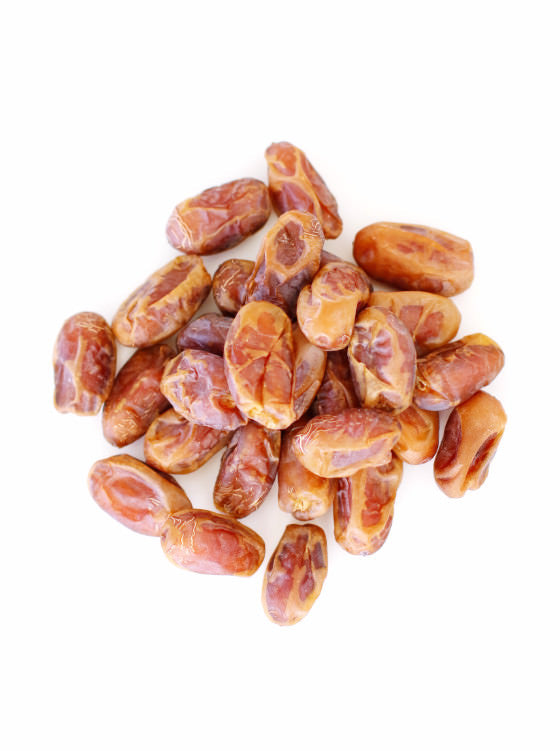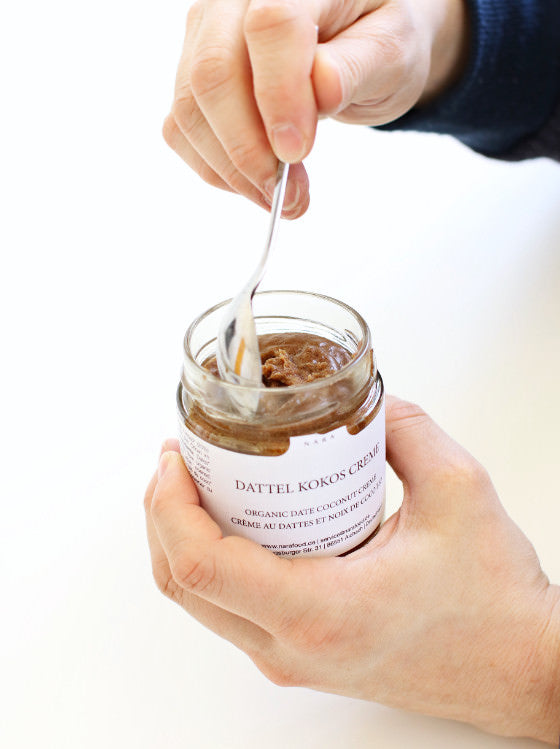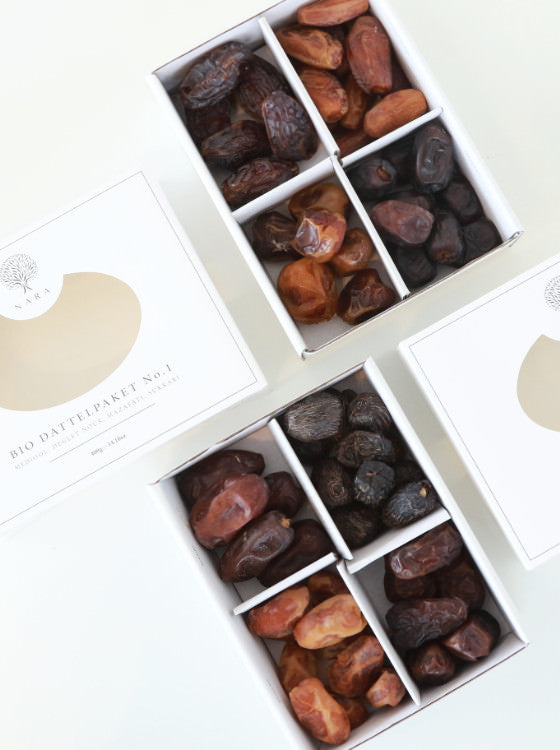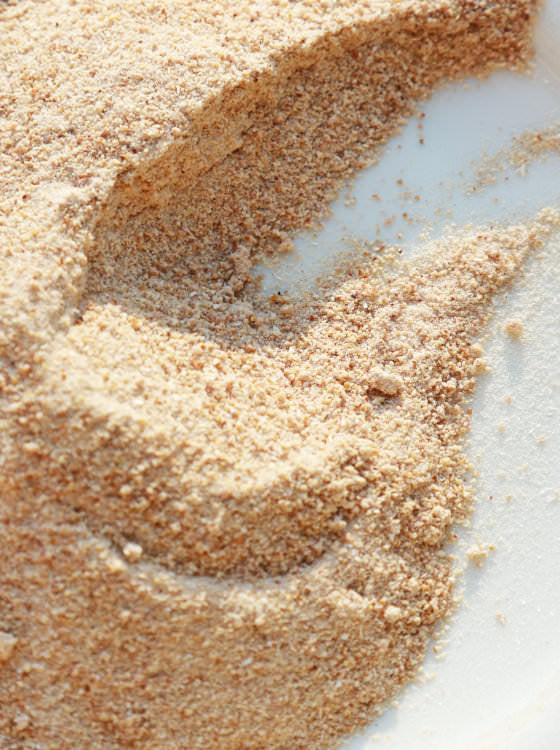News
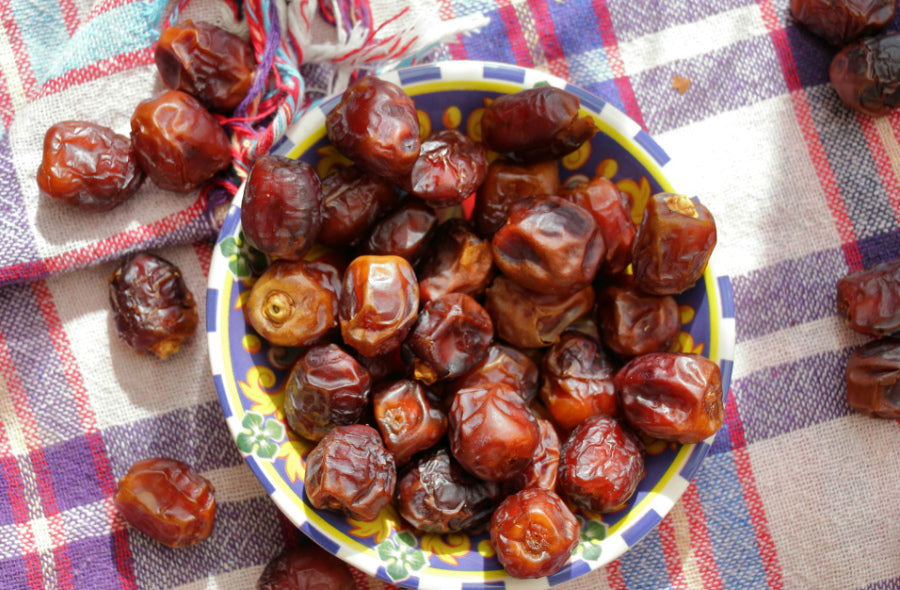
Dates & carbohydrates: everything you need to know
How many carbohydrates do dates have? Read all the information on the KH values of different varieties, glycemic index, compatible diets and much more here "

Is there a date allergy? What can be behind it
How likely is a date allergy really? What cross-allergies are there and what intolerances can occur? Find out more here "

Dates with & without pesticides: the subtle difference in cultivation
Insects, diseases and the like are a well-known problem on date farms. But can stable yields only be achieved using chemicals? What alternatives are there in organic farming? You can find out this ...

Top quality dates: what characteristics are important
Consistency, aroma, sweetness or appearance? What quality characteristics should you look out for in dates? Find out here in our blog:
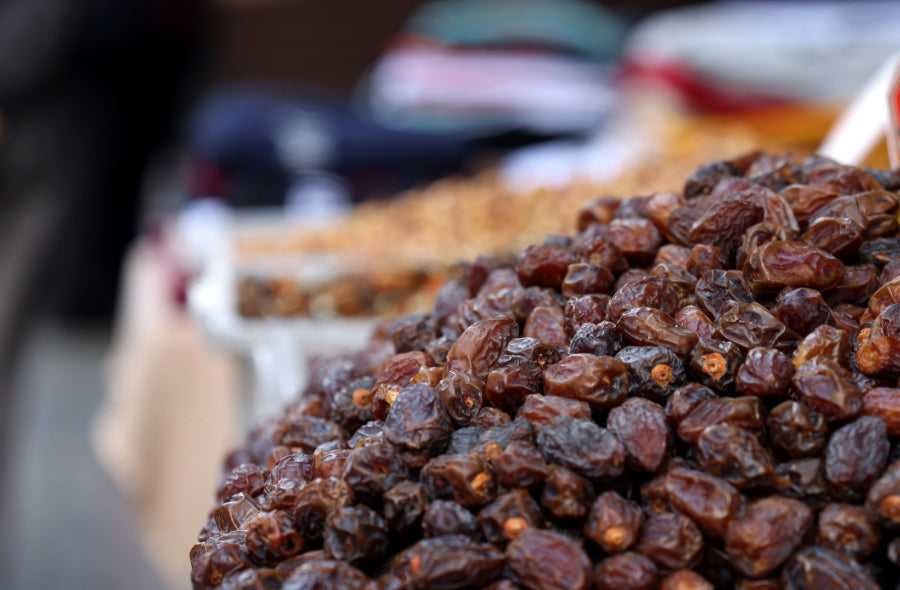
How much fiber is in dates? And how do they benefit you?
How much fiber is really in dates? And what does this mean for your date consumption and your well-being? Find out more in our blog "
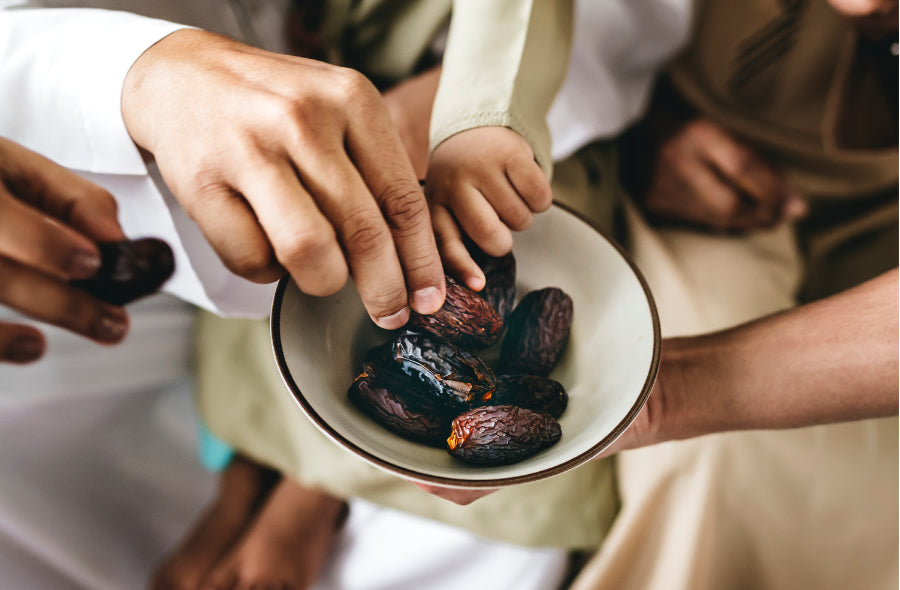
Unsulphured dates vs. sulphured dates: 5 misconceptions you should know about
There is widespread agreement that it is better to buy unsulphured dates. But what if something is wrong here? Find the mistake ➤
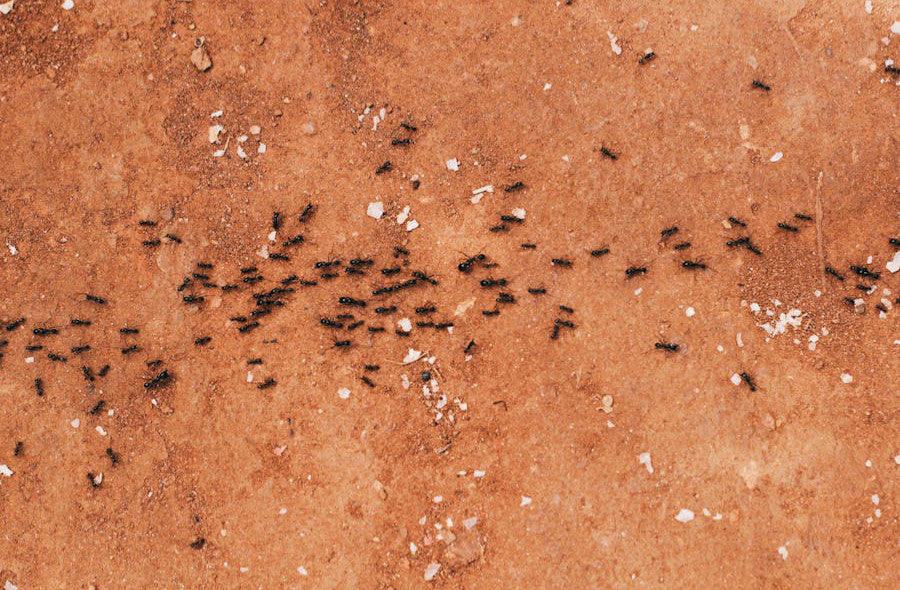
Dates with insects: How to recognize affected fruit
What types of insects can occur in dates? How do organic farming measures reduce insect infestation? Find out more here "
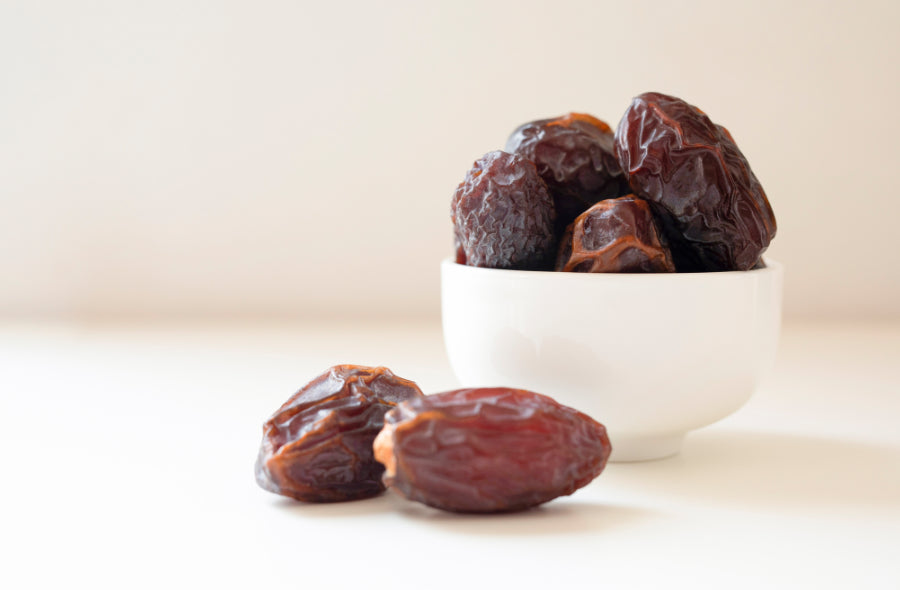
datteln
Are dates high in iron? Interesting facts for your diet
Did you know that dates contain iron? Find out more about their iron content and how they can contribute to your diet in our blog "

datteln
Dates with mould: how to recognize them and how to avoid mould
How can you tell if dates are affected by mold? What other causes can lead to changes in the fruit? Find out more here "

